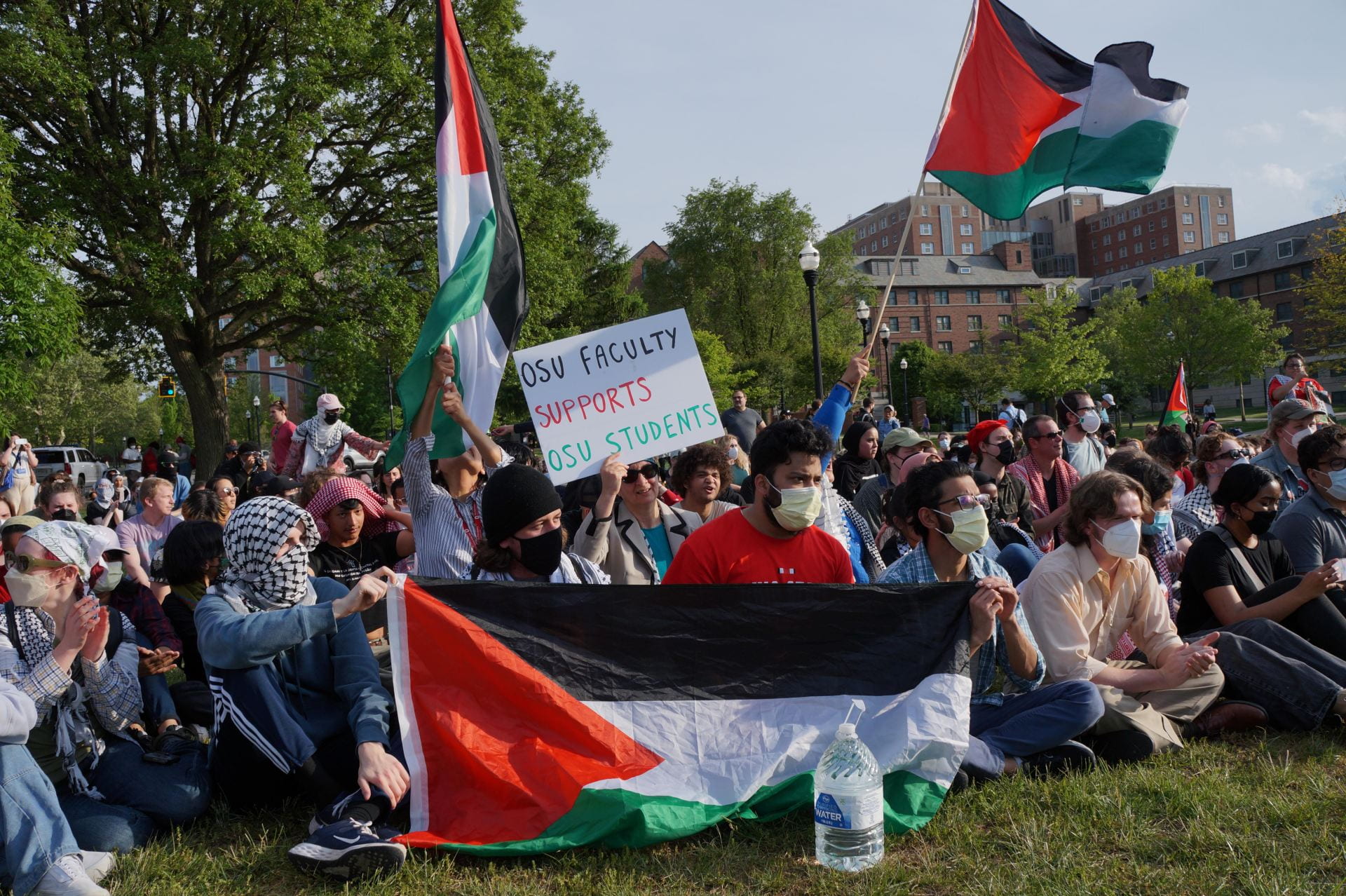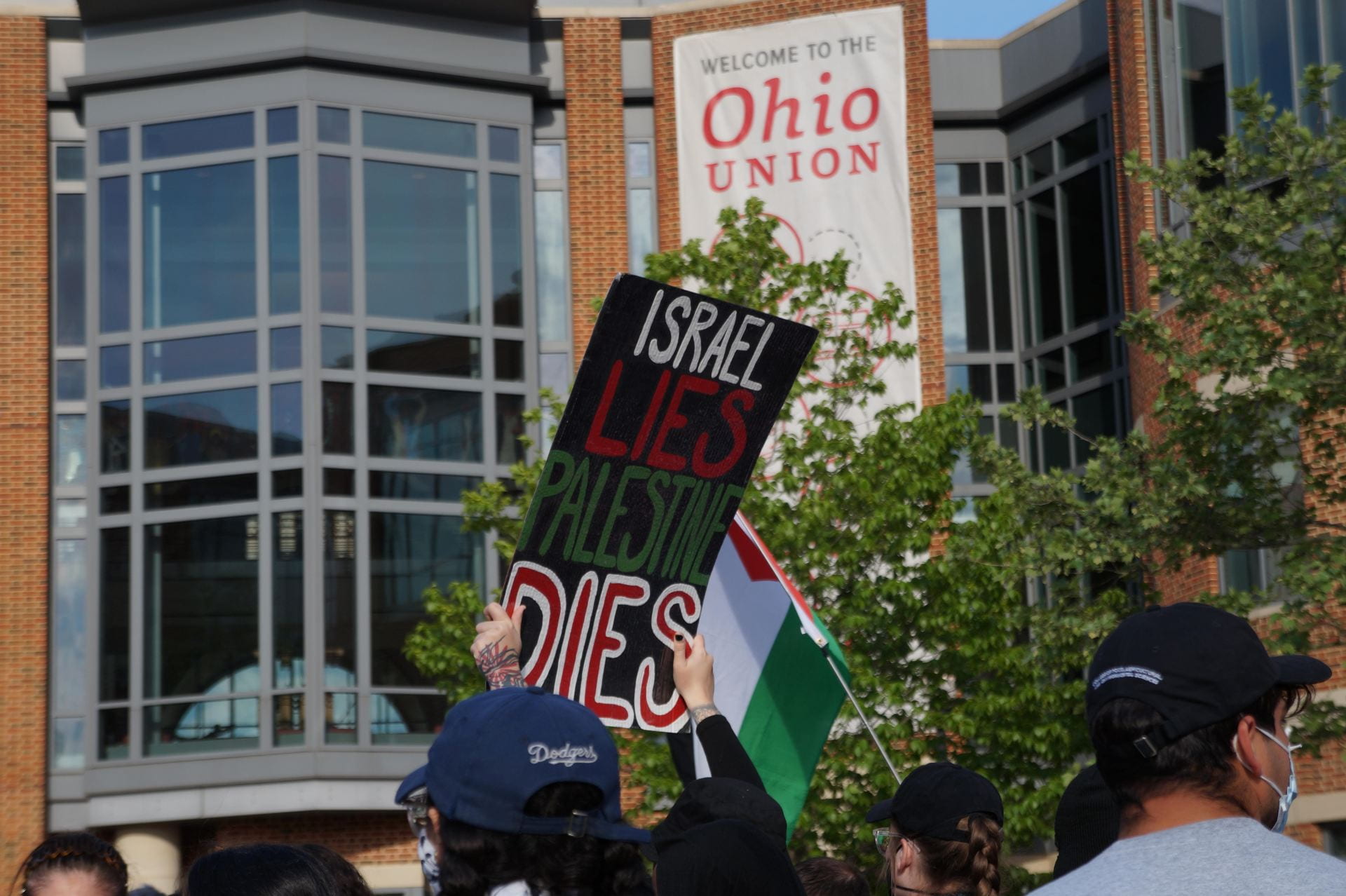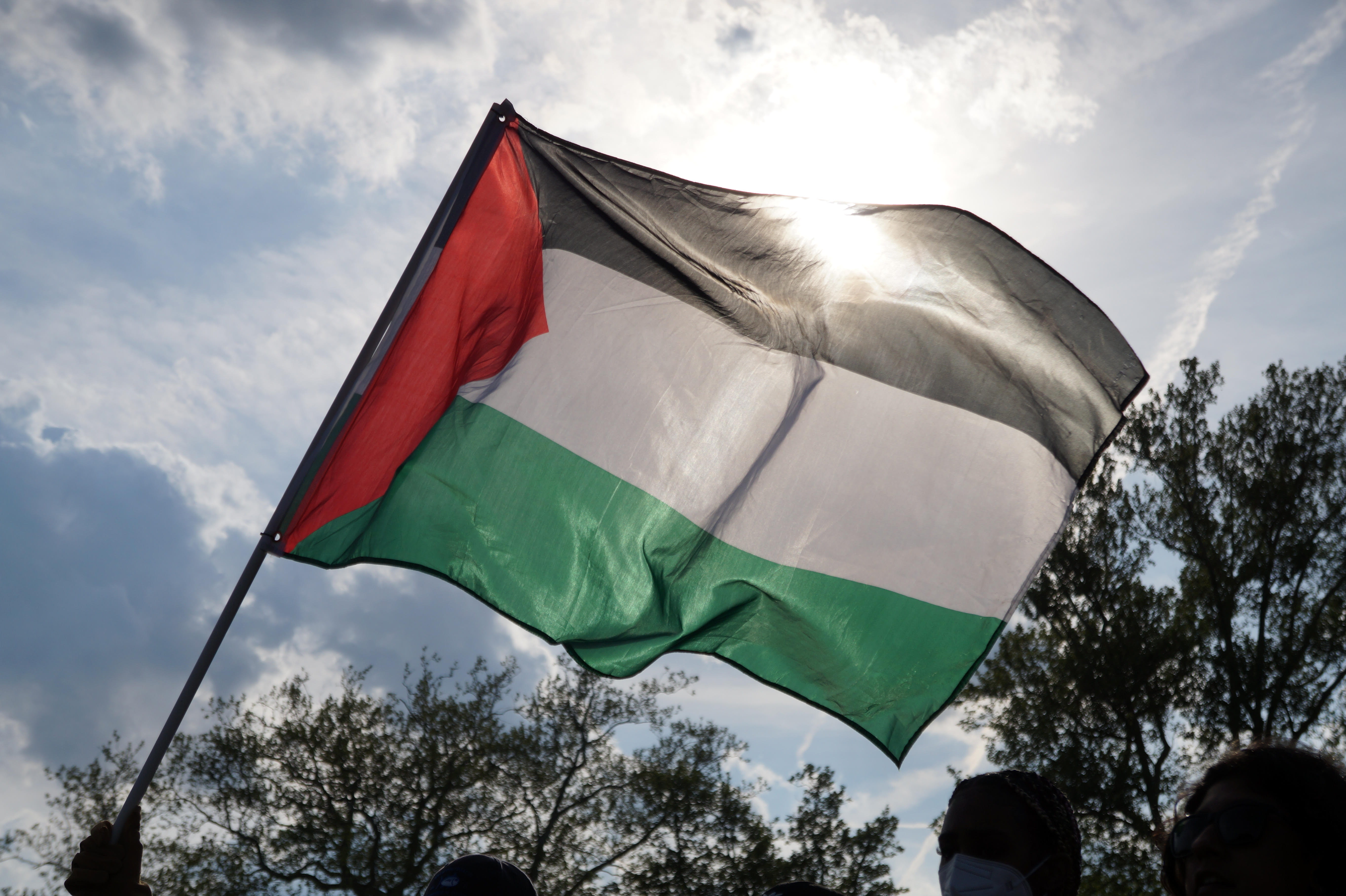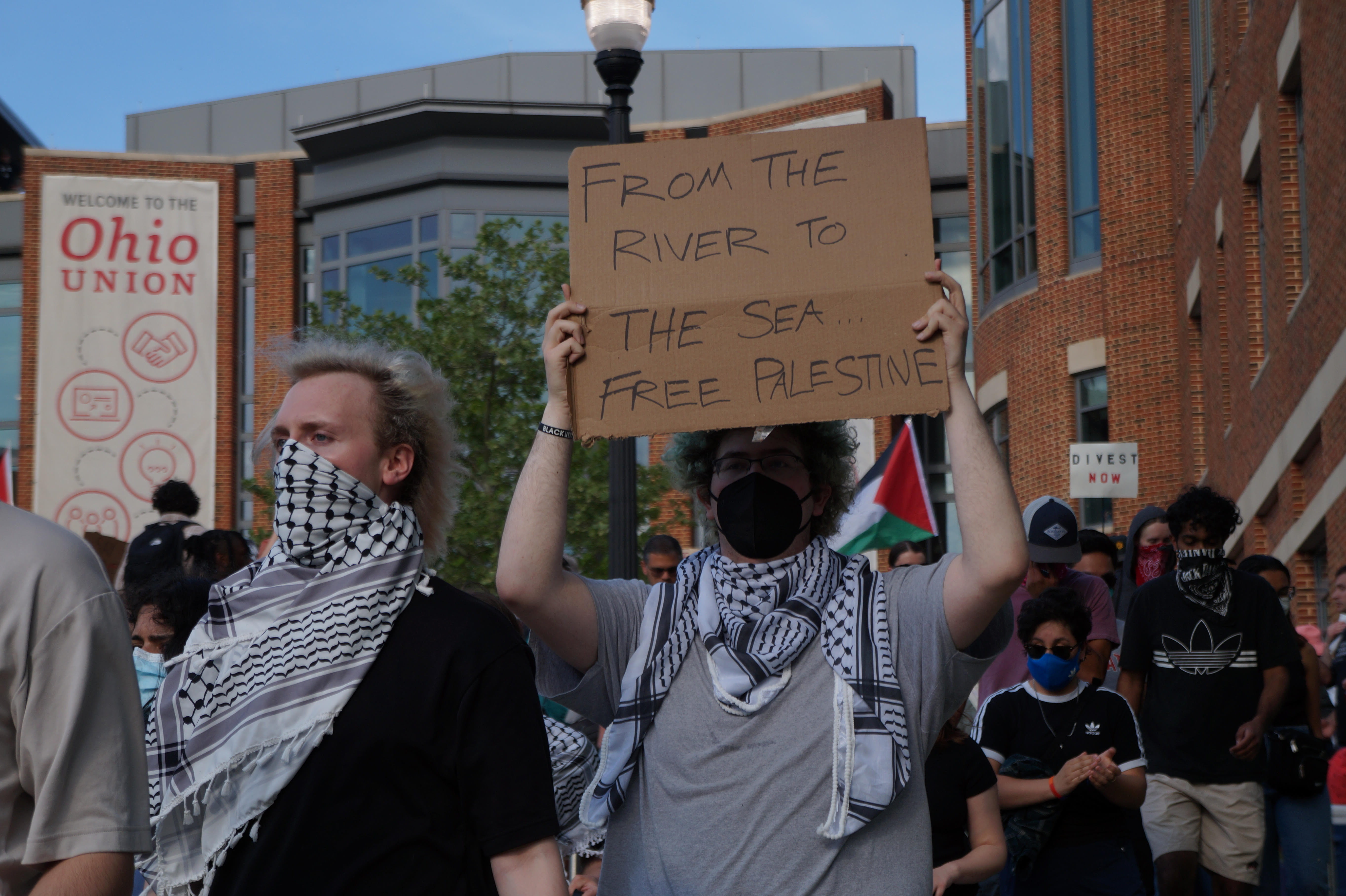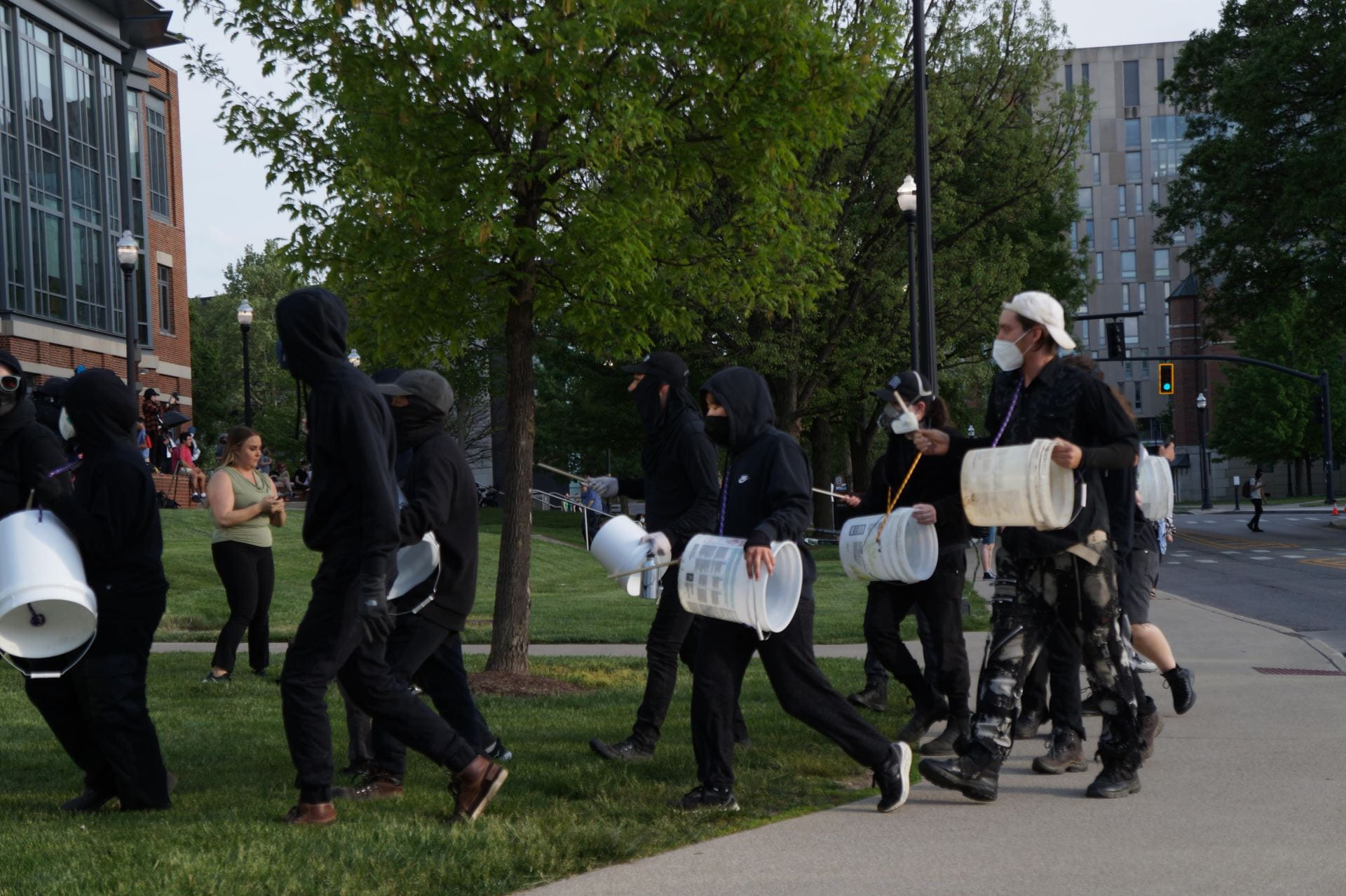
On Wednesday, nearly 600 people participated in a pro-Palestinian protest on the South Oval, at which no arrests took place. Credit: Carly Jo Damon | Assistant Photo Editor
The setting sun beat down on roughly 600 people as they came together to protest the war in Gaza on the South Oval Wednesday, also urging Ohio State to divest from Israeli assets and criticizing university President Ted Carter Jr. Unlike a previous protest on Thursday, no arrests were made.
Wednesday’s protest succeeded a pro-Palestinian demonstration that took place on the South Oval Thursday, during which 36 people — including 16 students — were arrested. Even before then, two students were arrested and charged with criminal trespassing while advocating for full financial disclosure from the university on April 23.
On Wednesday, participants chanted comments like “Disclose, divest, we will not stop, we will not rest,” “The more they try to silence us, the louder we will be” and “We demand you drop the charges.”
The demonstrators stopped chanting twice to participate in Muslim prayers, specifically Asr around 5:30 p.m., and Maghrib at sundown.
Chants also explicitly referenced Carter, with protesters shouting “President Carter, you can’t hide, you are funding genocide.”
On Monday, Carter released a university-wide email statement, which said Thursday’s 36 arrests were “not about limiting free speech.” Rather, the statement said protesters’ decision to erect at least 10 tents on the South Oval violated Ohio State’s space rules.
“Encampments are not allowed on campus regardless of the reason for them,” Carter said. “They create the need for around-the-clock safety and security resources, which takes these resources away from the rest of our community.”
Today, a university-posted sign reading “No overnight events permitted — to include encampments” was situated between the Ohio Union and South Oval.
In accordance with the sign, no encampments were constructed at Wednesday’s gathering.
The Ohio State Police Department and the Ohio State Highway Patrol were present at the protest, with the latter providing overwatch support. These officers watched the protest from the Ohio Union’s roof.
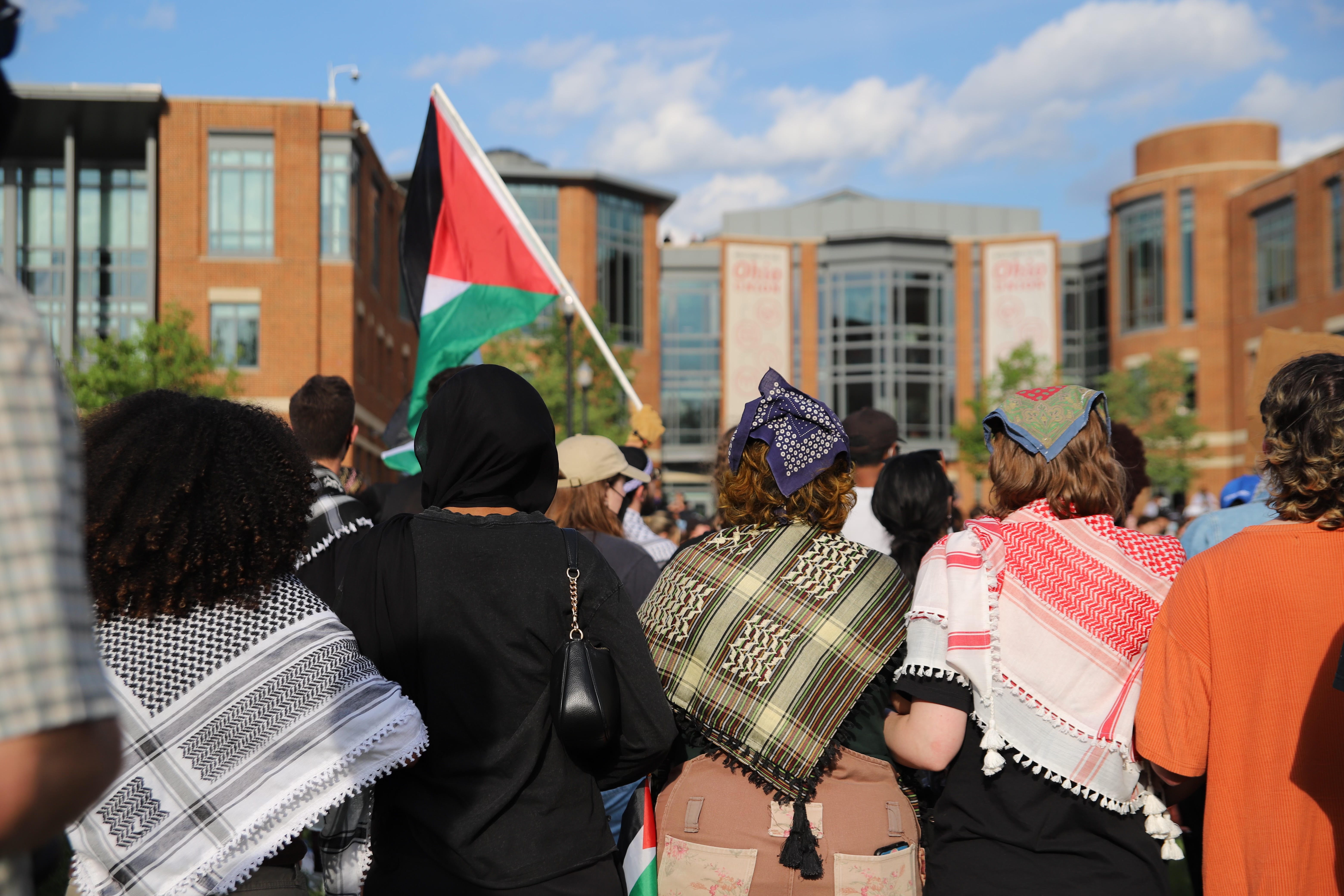
A pro-Palestinian protest took place on the South Oval on Wednesday. Credit: Carly Jo Damon | Assistant Photo Editor
“OSHP overwatch is a standard part of the university’s public safety preparation for large events, including athletic events and planned large gatherings,” university spokesperson Ben Johnson said in an email. “Overwatch is a nationally accepted best practice and designed to maintain a safe environment for all individuals present.”
Johnson said overwatch officers are armed, carrying “standard equipment, including firearms, that would only be used reactively to protect the safety of all present, including demonstrators.”
Around 6:26 p.m., water and foods like flatbread and watermelon started to be passed around to protesters. One demonstrator shouted for protesters to not waste their food, as “the people of Gaza have been starving for two hundred days.”
Simultaneously, a separate pro-Palestinian protest began outside of Thompson Library around 6:51 p.m., comprising around 20 individuals dressed in black. There was an inner circle of participants around the William Oxley Thompson statue with tubes linking their arms together, while an outer circle of people played drums.
Demonstrators released colored smoke bombs around the statue, and chanted phrases like “Free, free, free Palestine; free, free, free Gaza” and “Ceasefire now.”
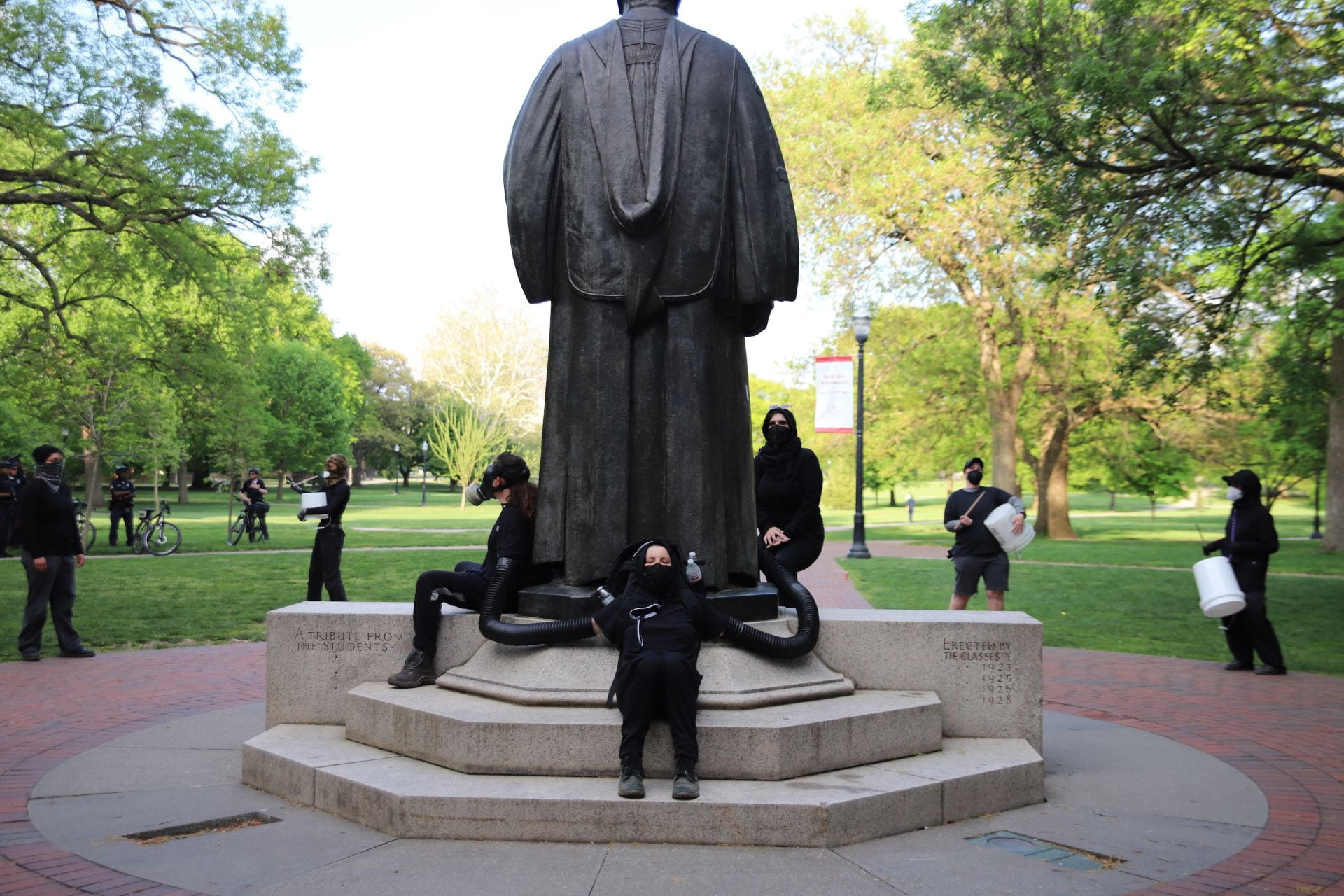
While a 600-person pro-Palestinian protest unfolded on the South Oval Wednesday, a separate protest comprising roughly 20 people took place outside Thompson Library. Credit: Carly Jo Damon | Assistant Photo Editor
At roughly 9 p.m., on the South Oval, the crowd dwindled to roughly 150 people. Space rules state that noise is restricted Monday through Friday before 5:30 p.m., and after 10 p.m.
At 9:15 p.m., organizers told attendees to disperse, with someone shouting that it’s “really easy for [law enforcement] to f*ck up a small amount of people, so please get in a group and go home safely.”
At its peak, around 200 faculty members were present at Wednesday’s protest, according to Pranav Jani, an associate professor of English and faculty director of Students for Justice in Palestine. Jani said he is not an organizer but hopes to be part of a negotiating team with administrators to better protect students’ right to protest.
“We have some faculty who have written to the president and said we are willing to be negotiators between the administration and the students,” Jani said. “Hopefully, they will listen and participate in that.”
Jani said the focus of the protests is not only on student arrests and police pressure, but students mainly want to bring awareness to what is happening in Gaza.
“What I’ve really been moved by is the students saying, ‘Don’t center me, center the people of Gaza,’ and that’s what this is for,” Jani said. “That’s really moved me. I’ve been part of this work for 30 years. I’ve been at Ohio State for 20 years. I’ve never been moved like I’ve been moved by these students in the last year.”
